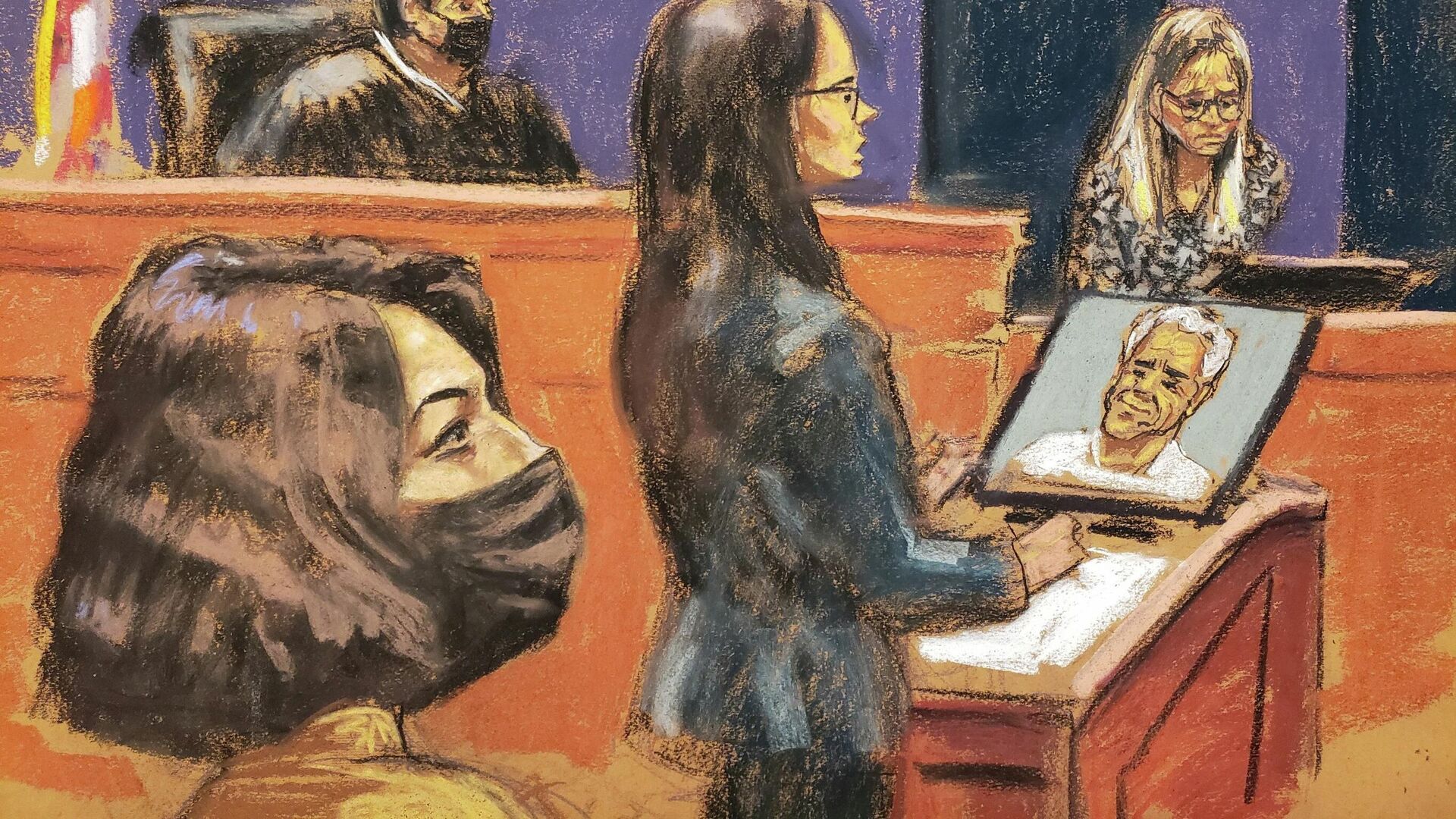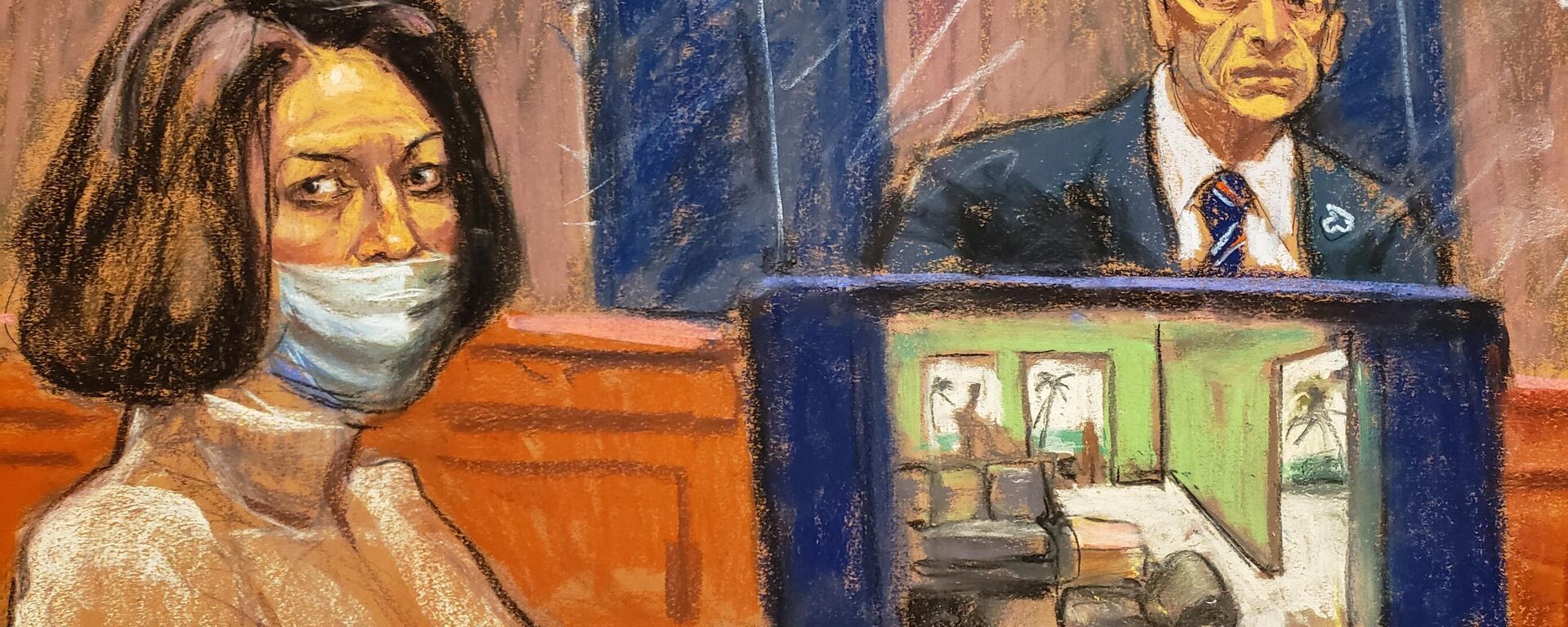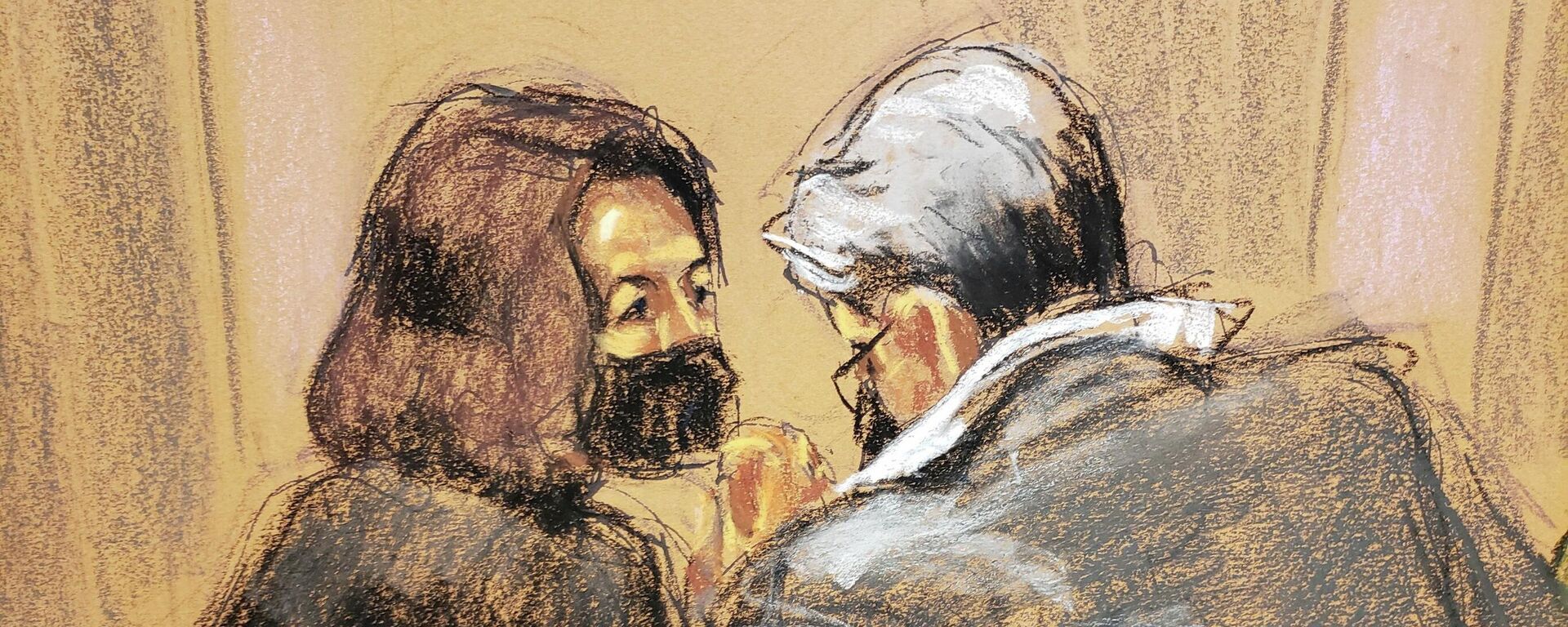Can Ghislaine Maxwell Win Epstein Sex Trafficking Case if She Gets Retrial?
19:15 GMT 10.01.2022 (Updated: 15:17 GMT 28.05.2023)

© REUTERS / JANE ROSENBERG
Subscribe
Jeffrey Epstein's madam, Ghislaine Maxwell, may see her case re-tried in court if it is proven that jurors lied and used their sexual abuse experience to influence the outcome of the case, legal experts say. However, that's just half the challenge the British socialite is facing, according to them.
Ghislaine Maxwell's lawyers are calling for a retrial after it turned out that some jurors used their experience as victims of sexual abuse during deliberations, which appeared to have influenced the jury’s decision. It remains unclear if they failed to reveal their traumatic experience in juror questionnaires.
Maxwell, a 60-year old British socialite, was found guilty on 29 December of conspiring with American millionaire-paedophile Jeffrey Epstein to groom and sexually abuse underage girls. She faces up to 65 years in prison. District Judge Alison Nathan requested the defence submit a retrial request by 19 January.
'A New Trial Could be Required'
"The new revelations are a serious blow to the prosecution, as they have acknowledged," says Zachary Margulis-Ohnuma, principal attorney at ZMO Law PLLC, a criminal defence and civil rights firm in New York City.
The lawyer notes that the claims that jurors lied in their questionnaires have the potential to disrupt the guilty verdict. However, the defence has to show more than just that the juror lied: there has to be reason to believe that the fairness of the verdict was affected, according to him.
Meanwhile, it appears that the jurors "not only withheld information from the court and the parties but may have used that information – their own experience of being sexually abused as children – to sway other jurors and influence the outcome of the case based on information that was not presented in court," according to the attorney.
Therefore, one of the jurors told the press that he had revealed to his counterparts that judging from his own experience a victim’s imperfect memory of sexual abuse does not mean it did not happen. The accuracy of memories of sexual abuse victims was a crucial point discussed by attorneys during the trial.
"If the press reports are true and jurors used their own, undisclosed, outside experiences of being sexually abused to persuade other jurors that the alleged victims were telling the truth, that might be enough to undermine confidence in the outcome of the trial and require a new trial," Margulis-Ohnuma notes.
Why Post-Verdict Revelations are 'Tricky'
Courts typically are skeptical of post-verdict revelations of juror misconduct, argues Bennett Gershman, a former prosecutor and Pace Law School professor. If such an allegation emerges during the trial, a judge can correct any possible irregularity; but after a verdict has been reached, it becomes more problematic, he explains. The only remedy is a drastic one: setting aside the verdict, according to the former prosecutor.
"Getting the facts after a trial can be a tricky process," Gershman underscores. "Memories may be hazy and differ among jurors, and self-serving statements by jurors may be unreliable. Did a juror deliberately lie on a juror questionnaire or did she honestly forget? Did the juror mention it to a fellow juror? What did he say? Did it seem important or inconsequential? How many jurors were privy to the conversation? Or conversations? Did it matter? Was it discussed during the lengthy deliberations?"
The former prosecutor has drawn attention to the fact that the jury deliberated for a whopping five days and returned a split verdict, suggesting that it means that they were doing their work "diligently, responsibly, and impartially."
In addition to that issues of memory, repressed memory, and failure to report contemporaneously with the events, was examined by the lawyers exhaustively, argues Gershman, recalling that an expert even testified on these issues.
"Moreover, it is a well-known precept of jury analysis that jurors do not discard their everyday experience and common sense when entering the jury room," the former prosecutor notes. "Is it surprising and shocking that some jurors suddenly remember things they thought they forgot? And is it critical if they relay this common sense observation to fellow jurors? Of course, jurors faced with this realization perhaps should have reported this to the trial judge. Maybe they didn’t think it was that important. We do not know the facts."
A verdict is presumed to be valid until shown to be invalid, the legal expert emphasises, adding that the "proof of guilt is strong" and that, in his opinion, the verdict will stand.
What are Maxwell's Odds of Winning Retrial?
"Maxwell's chances of getting a new trial are probably less than 50-50, but it is certainly worth trying," deems David Levine, professor of law at the University of California Hastings College of Law.
He explains that if the motion for retrial is denied, that decision will provide a substantial ground for appealing the verdict. Given this, the judge is likely to conduct a careful examination of the jurors in question and write a detailed decision in support of the denial, the professor points out. The appellate court will then have to decide whether the trial judge's decision amounted to an abuse of discretion. "In other words, the trial court's decision will get a substantial amount of deference from the appellate judges," Levine says.
Meanwhile, getting a retrial is one thing, but winning it is a different thing, remarks Zachary Margulis-Ohnuma.
"In my experience, defendants usually lose on retrial," the attorney underscores. "By trying the case once, the government learns about weaknesses in its case and fixes them on retrial. Now that all the evidence is public if a new trial is ordered, it might be a good time for the parties to come together and try to work out a guilty verdict consistent with the evidence and with Maxwell's experience."



